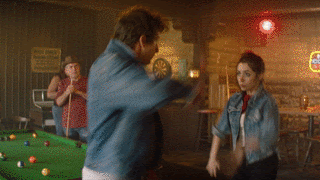One of the exceedingly few good things to come out of this year of COVID has been the reemergence of drive-in movie theaters. The worst things about theaters have been and always will be the proximity to random strangers (I got stories, believe me, folks).
SNEAK SCREENINGS (JULY 9)
NEW YORK
Orchard Beach
Bronx, NY
Nickerson Beach
Nassau Cty, NY
Murmrr
Montauk, NY
MIAMI
Hard Rock Stadium
Miami, FL
CALIFORNIA
Vineland Drive-In
City of Industry, CA
Rose Bowl
Pasadena, CA
TEXAS
AT&T Stadium
Arlington, TX
WEEK-LONG ENGAGEMENTS
CALIFORNIA
Van Buren Cinema 3 Drive-In
Arlington, CA
De Anza Mission Four Drive-In
Montclair, CA
De Anza Rubidoux Drive-In 3
Riverside, CA
Paramount Drive-In
Paramount, CA
Vineland Drive-In,
City of Industry, CA
Cameo Cinema
St. Helena, CA
De Anza South Bay Drive-In 3
San Diego, CA
Santee Twin
Santee, CA
Camelot Theatre 3
Palm Springs, CA
NEW YORK
Warwick Drive-In
Warwick, NY
Delevan Twin Drive-In
Delevan, NY
Transit Drive-In
Lockport, NY
Malta Drive-In
Malta, NY
Vintage Drive-In
East Avon, NY
Sunset Drive-In
Middleport, NY
Silver Lakes Drive-In
Perry , NY
Finger Lakes Drive-In
Aurelius (Auburn), NY
Elmira Bargain Drive-In
Big Flats, NY
Bay Drive-In
Alexandria Bay, NY
Black River Drive-In
Black River, NY
INDIANA
Tri Way Drive-In 2
Plymouth, IN
Tibbs Drive-In
Indianapolis, IN
IOWA
Blue Grass Drive-In
Blue Grass, IA
Superior 71 Drive-In
Spirit Lake, IA
MICHIGAN
Getty Drive-In
Muskegon, MI
NEW HAMPSHIRE
Weirs Drive-In
Laconia, NH
NEW JERSEY
Delsea Drive-In
Vineland, NJ
NORTH CAROLINA
Badin Road Drive-In
Albemarle, NC
Hounds Drive-In
Kings Mountain, NC
Eden Drive-In
Eden, NC
OHIO
Magic City Drive-In
Barberton, OH
Springmill Drive-In
Mansfield, OH
Midway Drive-In 2
Ravenna, OH
South Drive-In
Columbus, OH
Dixie Drive-In Theatre
Dayton, OH
Field of Dreams Drive-In
Liberty Center, OH
Field Dreams Drive-In
Tiffin, OH
Van-Del Drive-In
Middle Point, OH
Elm Road Drive-In
Warren, OH
Skyway Drive-In
Warren, OH
PENNSYLVANIA
Skyview Drive-In
Carmichaels, PA
Comet Drive-In
Dunbar, PA
Brownsville Drive-In 3
Brownsville, PA
Starlight Drive-In
Butler, PA
Dependable Drive-In
Coraopolis, PA
Evergreen Drive-In Theater
Mount Pleasant, PA
Garden Drive-In
Hunlock Creek, PA
Circle Drive-In
Scranton, PA
Pike Drive-In
Williamsport, PA
Carrolltown Drive-In
Carrolltown, PA
SOUTH CAROLINA
Highway 21 Drive-In
Beaufort, SC
TEXAS
Galaxy Drive-In
Ennis, TX
Showboat Drive-In
Hockley , TX
TENNESSEE
Stardust Drive-In
Watertown, TN
Summer Drive- In 4
Memphis, TN
WASHINGTON
Rodeo Drive-In 3
Pt. Orchard, WA
Orcas Island FF Pop Up Drive-In
Orcas Island, WA
WISCONSIN
Moonlight Outdoor Drive-In
Shawano, WI
And if you can’t make it to any of these places, well, there’s always Hulu. Happy millionth birthday, dipshits.

(@PopSmokeCentral) July 8, 2020







